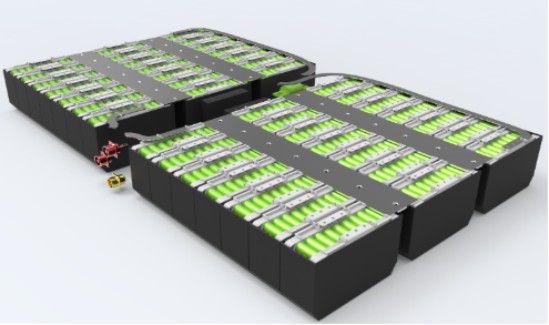How Much Do Lithium Batteries Cost?
Jul 31, 2019 Pageview:3285
Introduction
Lithium has been the front runner in the battery technology market for many years. This battery technology is being used in various applications including electric vehicles, electronics such as laptops and flashlights, and various military applications. Lithium batteries get all the credit from the chemistry that makes them so powerful. There are other rechargeable battery designs that are limited in ways lithium batteries just aren’t. This has made lithium-based batteries represent one of the fastest-growing segments of the energy industry today. However, the price is the only thing that is holding back this technology.
How much do lithium batteries cost on average?
Lithium-ion batteries are said to be around four to five times more expensive than nickel-metal-hydride ones. The car capable lithium-ion battery packs can cost between $10,000 and $15,000 each. There are also concerns about battery life. Just like the AA batteries that you use in your TV remote control, lithium-ion batteries eventually die. Even if you aren’t using them, they will begin to degrade as soon as they are made.
Lithium batteries can be recharged, but only a limited number of times. The battery longevity is measured in cycle lives which represent the number of times the battery runs down, charge it up and use it again. A fully recharged lithium battery will give you a longer individual cycle life but will reduce the total number of cycles you will get from it. However, for lithium-ion batteries, you should not charge them fully or let them drain down completely.
The good news is that lithium-ion technology will continue to dominate the commercial market for energy storage in the next five years. This can be attributed to the fact that the lithium system costs are expected to fall by 30% to 50%, according to Energy Storage Update’s Energy Storage Cost and Performance Report 2015.
There is a growing supply of lithium batteries from mega-factories, and this is promising growth in electric vehicle sales. There are technological innovation and economies of scale which are backed by big balance sheets that have become very helpful in the manufacture of lithium batteries. This has resulted in manufacturers widening their competitive advantage and lower costs. The market has already experienced a drop in lithium battery system prices by about 33% in the last five years. These prices are actually expected to continue to fall.
Lux Research released a report just recently which estimates that frontrunners such as Panasonic could bring down the prices of Lithium-ion battery packs for electric vehicles by 35% to as low as $172/kWh in 2025.
The falling lithium-ion battery costs are good news for lithium-ion systems because batteries are the single most expensive item in a storage system. This actually accounts for about 60% of capital expenditure, followed by power conditioning system costs with 20%.
According to a Bloomberg New Energy Finance survey, the average price of lithium-ion battery is down to $209/kWh and the prices are set to fall below $100/kWh by 2025.
For instance, Tesla’s battery price was hovering around $400/kWh a few years ago, dropped below $190/kWh in early 2016. Today it may be around $150/kWh.
The price estimated by the Bloomberg New Energy Finance came from a survey of more than 50 companies. This price decline has been attributed to a growing manufacturing industry with significant economies of scale which have started to bring the lithium battery costs down.
Why do lithium-ion batteries cost so much?
Lithium-ion batteries of look very expensive, but many people don’t know why they are so costly compared with other traditional battery technologies. Sometimes the biggest cost may not be what you think.
1.A load of lithium
In the past few years, lithium prices have shot upwards almost without pause. Much of this growth can be attributed to the increased demand for and use of lithium batteries in consumer electronics, electric vehicles and large-scale energy storage projects. Manufactures of lithium-ion batteries have already started ramping up their production of lithium batteries.
There is high and increasing demand for lithium-ion batteries right now and so it may take a while for the supply to catch up with it. This means that the rise of lithium is not slated to slow any time soon.
However, there is one fact that you should know, and that is the increasing lithium prices aren’t what’s making lithium batteries so expensive. In fact, this metal makes up less than 5% of an average lithium-ion battery by volume. It is, however, essential but a very small part of the Li-Ion battery design. Moreover, lithium is not rare.
2.The cobalt cost
Cobalt is on metal that’s keeping lithium-ion batteries cost high far more than lithium itself. Cobalt is usually the negative cathode of a Li-Ion battery and makes up a much larger part of the battery by volume. This metal is actually not so much available like lithium.
There are very few mines that can safely and reliably produce cobalt. In fact, it is mainly mined as a by-product of other metal mining operations. This, therefore, means the world’s supply of cobalt is in a very risky position.
Moreover, cobalt is thousands of dollars more expensive than lithium. And the vast majority of the world’s supply of this metal comes from the Democratic Republic of Congo, followed by China.
What do you consider when you want to buy a lithium-ion battery?
Lithium-ion batteries have become part of everyday life. We are seeing more systems going mobile and remote, and Li-Ion batteries are becoming increasingly important to design. When you want to buy lithium-ion batteries you need to make sure you choose the right one. There are various design factors that you need to keep in mind in order to choose the best one.
· Battery lifetime – there are two factors to a battery’s lifetime: charge life and battery total life. There are lithium-ion batteries that have a longer charge life than others. They also have more cycle life, than any other types of batteries.
· Durability – when you are considering buying lithium-ion batteries, durability is one great thing that you need to consider. The more durable a battery is the more years of service it will give you.
· Energy density – lithium-ion batteries have a high energy density. They have a high energy density yet they are very compact.
· Power density - lithium-ion batteries have a high power density, and this means they can sustain high current draws for a long period of time.
Other things that you should consider, is you need. Your needs or application determine the right lithium-ion battery that you should buy. Probably you might be in need of a larger lithium-ion battery for applications that require more energy and power for a longer period of time.
Conclusion
Lithium-ion batteries have become very popular nowadays. We are seeing them in different applications such as electric vehicles and mobile gadgets. Today, there is an increasing demand for Li-Ion batteries. And for that reason, we are seeing large manufacturers getting down to rapidly increase their production of lithium-ion batteries. These batteries look a bit expensive compared with other older technologies. The costs are hugely associated with the scarcity of cobalt, a metal that cost thousands of dollars more than lithium.
- Prev Article: Discussion On The Best Lithium AA Batteries
- Next Article: Li-Ion Battery Definition
Leave Message
Hottest Categories
-
Hottest Industry News
-
Latest Industry News











